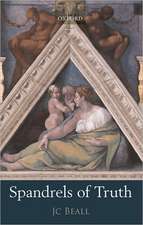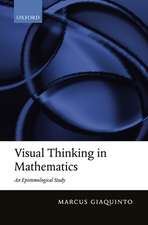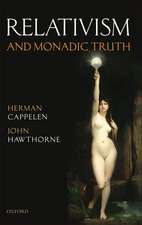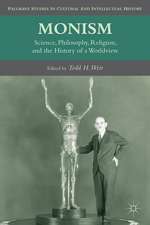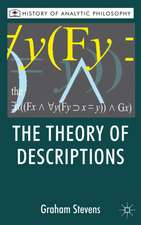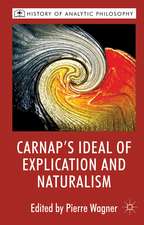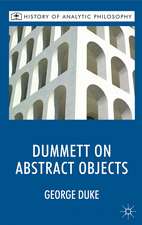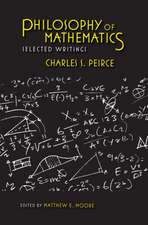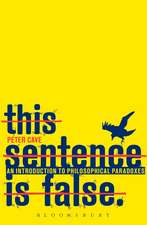Becoming Human: The Development of Language, Self and Self-Consciousness
Autor J. Canfielden Limba Engleză Hardback – 28 sep 2007
Preț: 386.00 lei
Nou
Puncte Express: 579
Preț estimativ în valută:
73.88€ • 80.28$ • 62.10£
73.88€ • 80.28$ • 62.10£
Carte tipărită la comandă
Livrare economică 22 aprilie-06 mai
Preluare comenzi: 021 569.72.76
Specificații
ISBN-13: 9780230552937
ISBN-10: 0230552935
Pagini: 186
Ilustrații: VIII, 186 p.
Dimensiuni: 140 x 216 x 17 mm
Greutate: 0.37 kg
Ediția:2007
Editura: Palgrave Macmillan UK
Colecția Palgrave Macmillan
Locul publicării:London, United Kingdom
ISBN-10: 0230552935
Pagini: 186
Ilustrații: VIII, 186 p.
Dimensiuni: 140 x 216 x 17 mm
Greutate: 0.37 kg
Ediția:2007
Editura: Palgrave Macmillan UK
Colecția Palgrave Macmillan
Locul publicării:London, United Kingdom
Cuprins
Setting Out What Language is Not Language-Games Learning to Talk How the Human Got its Words Self Portrait, Ink on Paper The Further Adventures of Nobody Consciousness Self Consciousness Back to Eden Index
Recenzii
'Canfield's book is a well-informed and highly creative work by a leading philosopher. It is a polished, sophisticated work, but accessible to the intelligent layperson. It illuminates what it is to be human in an original, readable and highly satisfying manner. It is genuinely eclectic, displaying an impressive command of a range of different approaches to its subject. In short, a profound account of our march toward a full humanity, written with great clarity and verve.' - Professor William DeAngelis, Department of Philosophy and Religion, Northeastern University, Boston, USA
'This is a brilliant book! It presents a highly plausible view of the nature and origin of language, consciousness and self-consciousness and goes on, in what is the heart of the book, to give a novel and compelling treatment of the self or ego - the I. Finally, in a stimulating and controversial way Canfield connects these notions to Buddhist ideas about the illusion of the self. The implications of his analysis are enormous.' - Professor Robert Arrington, Department of Philosophy, Georgia State University, USA
'The critique of the concept of self in our understanding of our humanity is a formidable topic, which is here handled with boldness and subtlety. The result is nothing less than a radical and compelling revision of that understanding.' - Dr Danièle Moyal-Sharrock, Department of Philosophy, Birkbeck, University of London, UK
'In this book, John Canfield tacklesone of our long standing cultural myths, the duality of subject and object, the self and the other. The idea of speech as a cluster of practices and customs allows him to offer a more convincing account of the origins of language than any of the current orthodoxies. The core of his argument is an exploration of the consequences for our idea of what it is we are that come from deep misunderstandings of the grammar of the first person, the frame of our personal narratives. From that basis Canfield moves boldly from this Wittgensteinian perspective to a thrilling transcendence of the grip of language towards a Zen like perspective on what it is to be human.' - Professor Horace Romano Harré, Oxford University, UK, and Georgetown University, USA
'This is a brilliant book! It presents a highly plausible view of the nature and origin of language, consciousness and self-consciousness and goes on, in what is the heart of the book, to give a novel and compelling treatment of the self or ego - the I. Finally, in a stimulating and controversial way Canfield connects these notions to Buddhist ideas about the illusion of the self. The implications of his analysis are enormous.' - Professor Robert Arrington, Department of Philosophy, Georgia State University, USA
'The critique of the concept of self in our understanding of our humanity is a formidable topic, which is here handled with boldness and subtlety. The result is nothing less than a radical and compelling revision of that understanding.' - Dr Danièle Moyal-Sharrock, Department of Philosophy, Birkbeck, University of London, UK
'In this book, John Canfield tacklesone of our long standing cultural myths, the duality of subject and object, the self and the other. The idea of speech as a cluster of practices and customs allows him to offer a more convincing account of the origins of language than any of the current orthodoxies. The core of his argument is an exploration of the consequences for our idea of what it is we are that come from deep misunderstandings of the grammar of the first person, the frame of our personal narratives. From that basis Canfield moves boldly from this Wittgensteinian perspective to a thrilling transcendence of the grip of language towards a Zen like perspective on what it is to be human.' - Professor Horace Romano Harré, Oxford University, UK, and Georgetown University, USA
Notă biografică
JOHN V. CANFIELD is Professor Emeritus, University of Toronto, author of Wittgenstein: Language and World and The Looking-Glass Self, and editor of The Philosophy of Wittgenstein (in fifteen volumes) and Philosophy of Meaning, Knowledge and Value in the Twentieth Century.

